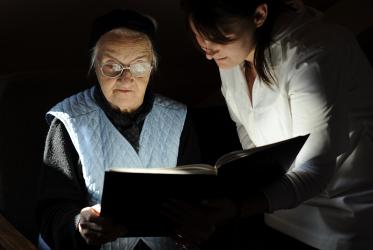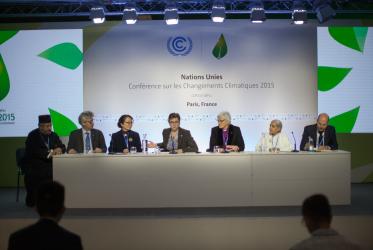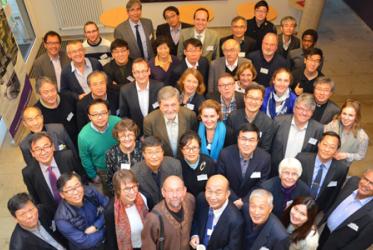Displaying 2201 - 2220 of 2642
Tveit: Time to follow up on COP21 and to prepare for Davos
17 December 2015
During Advent, WCC general secretary celebrates love, hope
16 December 2015
United Bible Societies: A world fellowship serving the churches
16 December 2015
Lutheran bishop remembers deceased refugees, urges church advocacy
16 December 2015
Consultation considers right to food in context of climate change
15 December 2015
Paris climate agreement hailed by ecumenical leaders
14 December 2015
Edward Dommen receives Colladon award for A Peaceable Economy
14 December 2015
WCC general secretary visits Rome
14 December 2015
Peace cannot be done by bullets, just by encounters
10 December 2015
During visits, Greek archbishop urges action on refugee crisis
10 December 2015
Armed forces no solution, says Evangelical Church in Germany
10 December 2015
COP21: how climate change affects access to our daily bread
09 December 2015
Basel University honors Ghanian Methodist theologian
09 December 2015







